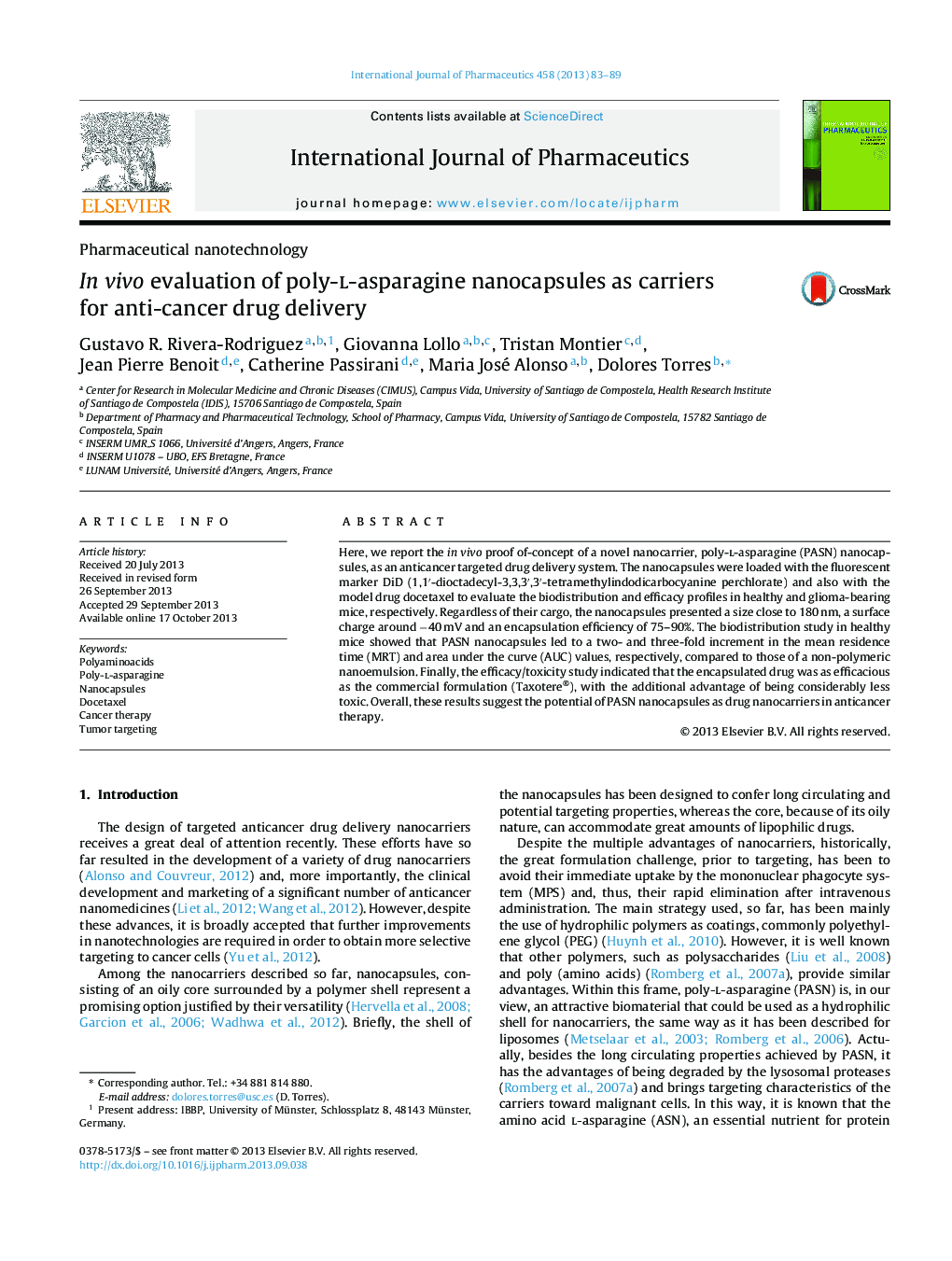| Article ID | Journal | Published Year | Pages | File Type |
|---|---|---|---|---|
| 2502069 | International Journal of Pharmaceutics | 2013 | 7 Pages |
Here, we report the in vivo proof of-concept of a novel nanocarrier, poly-l-asparagine (PASN) nanocapsules, as an anticancer targeted drug delivery system. The nanocapsules were loaded with the fluorescent marker DiD (1,1′-dioctadecyl-3,3,3′,3′-tetramethylindodicarbocyanine perchlorate) and also with the model drug docetaxel to evaluate the biodistribution and efficacy profiles in healthy and glioma-bearing mice, respectively. Regardless of their cargo, the nanocapsules presented a size close to 180 nm, a surface charge around −40 mV and an encapsulation efficiency of 75–90%. The biodistribution study in healthy mice showed that PASN nanocapsules led to a two- and three-fold increment in the mean residence time (MRT) and area under the curve (AUC) values, respectively, compared to those of a non-polymeric nanoemulsion. Finally, the efficacy/toxicity study indicated that the encapsulated drug was as efficacious as the commercial formulation (Taxotere®), with the additional advantage of being considerably less toxic. Overall, these results suggest the potential of PASN nanocapsules as drug nanocarriers in anticancer therapy.
Graphical abstractFigure optionsDownload full-size imageDownload high-quality image (95 K)Download as PowerPoint slide
